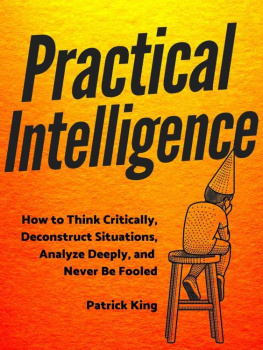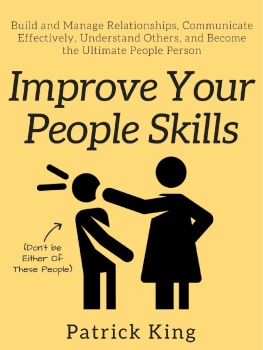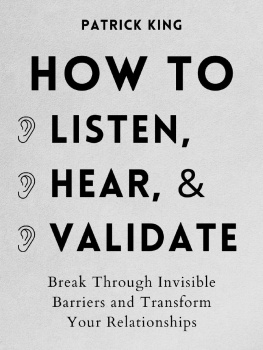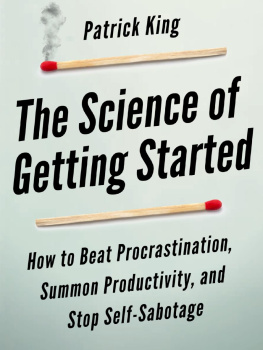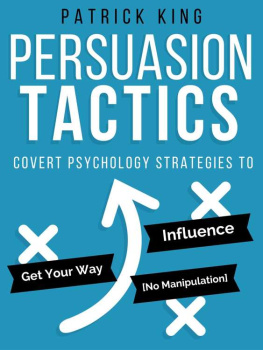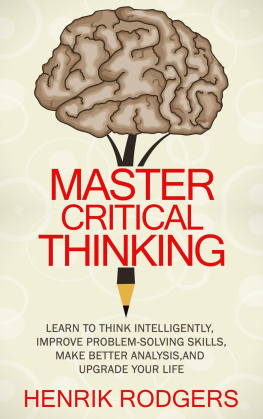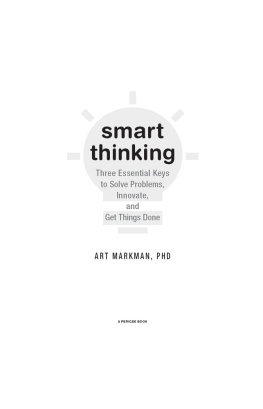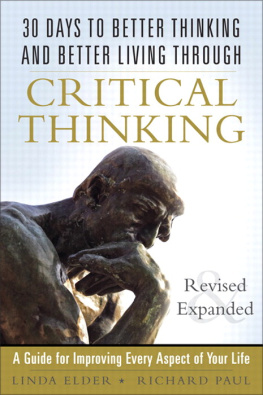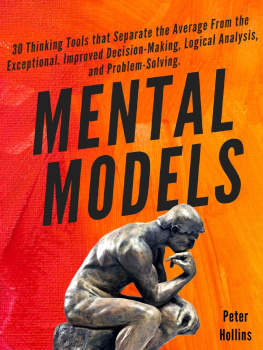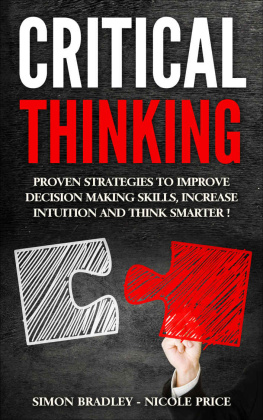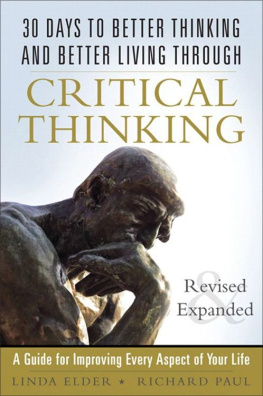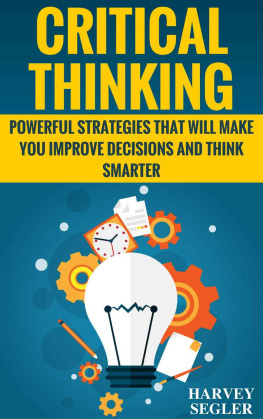Practical Intelligence: How to Think Critically, Deconstruct Situations, Analyze Deeply, and Never Be Fooled
Chapter 1. Look Beneath the Surface
Some of us are blessed with academic intelligence, otherwise known as pure book intelligence. This ability helps you in school, but it has limited applicability in the real world. It turns out there is just not that much use for memorizing equations and taking tests most of the time.
Others of us have kinesthetic intelligence, emotional intelligence, and even musical intelligence. You can guess what areas of life those help with.
But practical intelligence is sorely lacking these days. Its also known as common sense, seeing the world for what it is, and how to think . In reality, it turns out that how we navigate the world and approach it is far more important than what we actually know about it.
Practical intelligence is about taking in your surroundings, ascertaining whats happening, and then making the best decision for you with the information youve got. This might seem to be the most important of thinking skills, but its also one that is never explicitly taught. We are mostly left to ourselves to figure it out, and this can easily explain a lot of the mental errors we observe people making on a daily basis.
Going out of business sale? Okay, I need to buy everything right now.
This news article makes an outrageous claim without a citation? Well, sounds about right, so I will now believe it with all my might.
If I feel something is true, then it must be true.
And so on. You may be able to spot these errors at the moment, but these thoughts occur automatically throughout our lives, and we certainly dont catch all of them. Lets take the first step into using our brains for good, instead of using them to fall into traps and follies. Its always about looking underneath the surface and stopping the assumption that you can trust what you see, hear, and feel.
Weve all got that distant relative or long-lost friend who sends us occasional e-mails outlining the details of an off-the-rails conspiracy theory. This week, its the outrageous, infuriating, and totally proven! theory that the government is using childrens television shows to send secret messages to obey their orders. And unfortunately, youve opened this e-mail from your relative, even though you should know at this point that when something from this person is labeled IMPORTANT! it most certainly will not be.
Look at this data from the National Alphabet Council! they write. It shows that Big Bird from Sesame Street triggers a part of your brain that responds positively to authority! Its all in his beak! Over 85 percent of all Sesame Street watchers report experiencing electrical seizures every time Big Bird appears onscreen! I learned all this from Jack Sprats podcast Under Attack! Stop your kids from watching Sesame Street unless you want them to be lackeys to an authoritarian dictator!
Something strikes you as... fishy about this particular story.
The National Alphabet Council? What is that ? And all those kids reporting seizures? Geez, you know some people with kids. Youd think you would have heard about this by now. And isnt Jack Sprat that guy who claimed pasteurized milk makes schoolkids pledge allegiance to Satan?
All right, so you Google National Alphabet Council. To your utter lack of surprise, theres no such organization with its own website. But you did find a link to a Snopes.com article that reveals the National Alphabet Council was used as a source to prove that Green Eggs and Ham was a Communist manifesto.
First off, this e-mail didnt pass the sniff testsomething just seems off about it. Next, you dont find any data corroborating the reports on electrical seizures from kids watching Sesame Street . You find no evidence that Big Birds beak is sending out coded messages to children. However, you do find something about Jack Sprat: an interview he gave with a major metropolitan newspaper in which he admits, Look, Im just an entertainer. I make people feel a certain way. If I believed half the stuff I talk about, I wouldnt be doing a show. Id be curled up in the corner of my room, waiting for the world to end. Instead, I get a handsome paycheck!
You send this information to your relative. They respond back, Well, thats interesting. I havent thought about that. But that Jack Sprat is so passionate about his beliefs, and hes a great communicator. I think Ill stick to what he says. Say, have you heard the Illuminati is monitoring your online dating profiles?
Humans all want certainty. We want to be sure of our beliefsuncertainty is an uncomfortable feeling that we try to eliminate every time we make a decision or plan an event. And we want it fastnow, if not sooner.
Many of us consider doubt and hesitation as roadblocks to getting things done or signs of insecurity in our thoughts. Weve even been taught since we were young that speed of certainty is a sign of intelligence and solid thinking. As a result, we often race to get our beliefs affirmed by the first source we find and adopt them as proven truth.
This path presents a critical error in our natural thinking instincts, and its a tendency we must veer away from for better, smarter thinking. Certainty is more important than accuracy . We tend to seek out confirmation thats more passionate than truthful. Were more impressed by someone on television mounting a fervent argument about an issue, instead of a calm, reasoning, boring person who simply lays out the facts as they are. If someones acting intensely about their beliefs, were inclined to think they must have the truth on their side, and we get swept up right along with them.
Practical intelligence is about seeking truth, not prioritizing removing uncertainty over establishing certainty. They arent the same thing. Eliminating uncertainty means giving serious thought to whats causing doubtin our opening short story, that would be looking up the National Alphabet Council to find out if theyre on the up-and-up. Establishing certainty is simply glomming on to the first fact that soothes the uncomfortable feeling of uncertainty, insecurity, and simply not being sure of something .
This first chapter is about not accepting anything at face value, because face value tends to deceive in often intentional ways. Its about seeking the truth and nothing but the truth. You can imagine this might make you a pain in the butt to deal with, but its really not about that. Its about the fact that every situation has at least some complexity and nuance underneath it. And if you keep digging, oftentimes, things are completely different from what they seemed at first glance.

